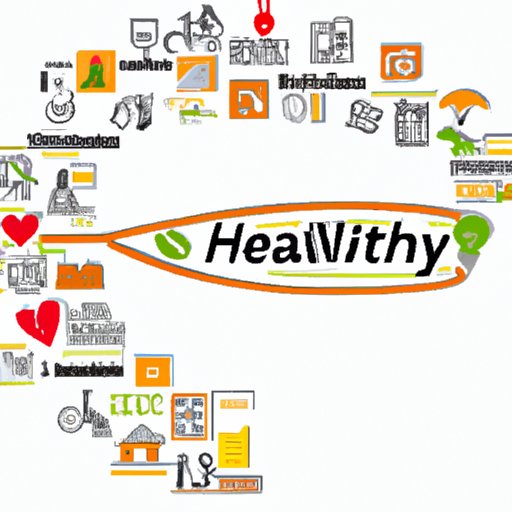Introduction
Health literacy is defined as the ability to read, understand, and act upon health information. It is a critical factor in achieving better health outcomes and can have a significant impact on overall public health. In this article, we will explore what health literacy is, why it is important, and how to improve it.

Exploring the Consequences of Low Health Literacy
When individuals lack sufficient health literacy, they are more likely to experience negative health consequences. For example, they may have difficulty understanding medical instructions, which can lead to incorrect usage of medications or treatments. This can result in misdiagnosis and medication errors, leading to worse health outcomes. Additionally, low health literacy is associated with higher healthcare costs due to increased emergency room visits and hospitalizations.

Investigating the Benefits of High Health Literacy
Conversely, when individuals have high health literacy, they are more likely to benefit from improved health outcomes. They are better able to understand and make informed decisions about their health, which can lead to better preventive care and self-care. Higher health literacy is also associated with lower healthcare costs due to fewer emergency room visits and hospitalizations.

Exploring Strategies to Improve Health Literacy
There are several strategies that can be used to improve health literacy. Access to accurate, reliable information is essential, as is education and support from healthcare providers. Technology can also be used to engage with health information, such as through online resources and apps. Additionally, healthcare providers can take steps to ensure that information is presented in an easy-to-understand format.
Understanding the Impact of Health Literacy on Public Health
Improving health literacy has a positive impact on public health. Greater health literacy leads to improved public health outcomes, increased access to care, and reduced disparities in health care. Additionally, individuals with higher health literacy are more likely to engage in preventive care and self-care, leading to improved overall health.
Analyzing How Health Literacy Can Promote Informed Decision-Making
High health literacy can enable individuals to make informed decisions about their health. Individuals with higher health literacy have a greater ability to understand and evaluate health information, increasing their engagement in preventive care and self-care. Furthermore, improved health literacy can lead to improved communication between patients and healthcare providers, resulting in better health outcomes.
Conclusion
In conclusion, health literacy is the ability to understand and use health information to make decisions and take action. Low health literacy can lead to negative health outcomes, while higher health literacy can lead to improved outcomes. Strategies for improving health literacy include access to accurate information, education and support from healthcare providers, and use of technology. Improving health literacy also has a positive impact on public health, leading to improved public health outcomes, increased access to care, and reduced disparities in health care. Finally, health literacy can help individuals make informed decisions about their health, leading to better overall health outcomes.
(Note: Is this article not meeting your expectations? Do you have knowledge or insights to share? Unlock new opportunities and expand your reach by joining our authors team. Click Registration to join us and share your expertise with our readers.)
